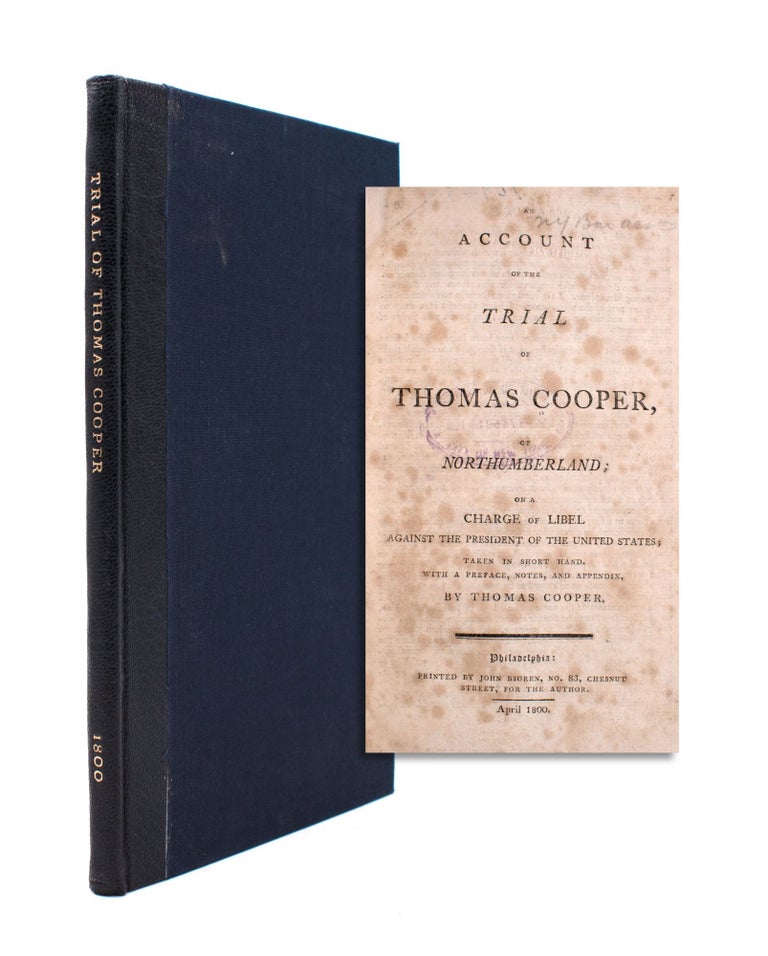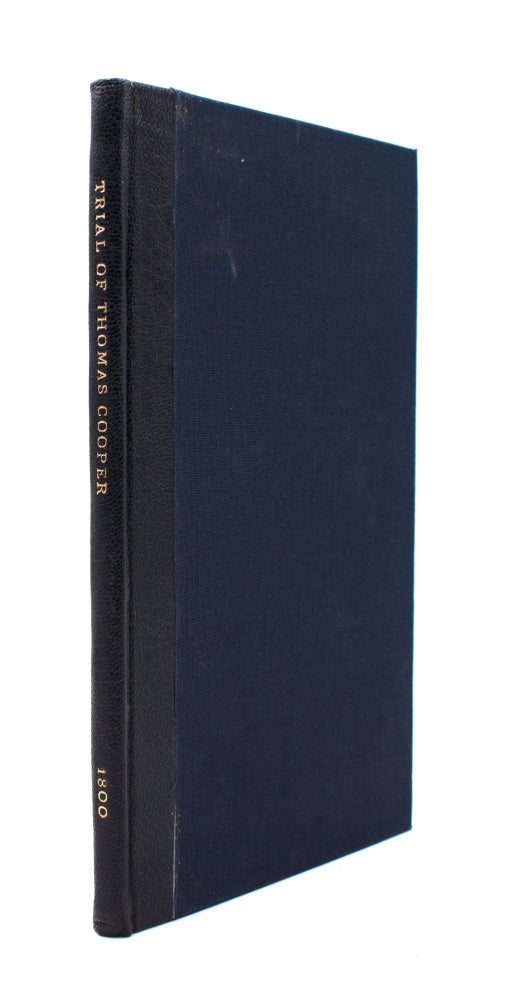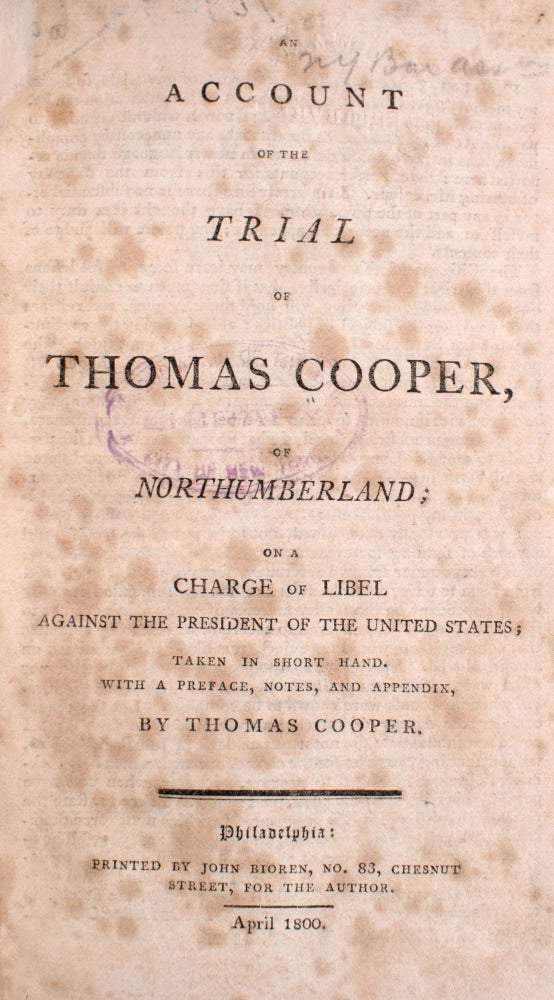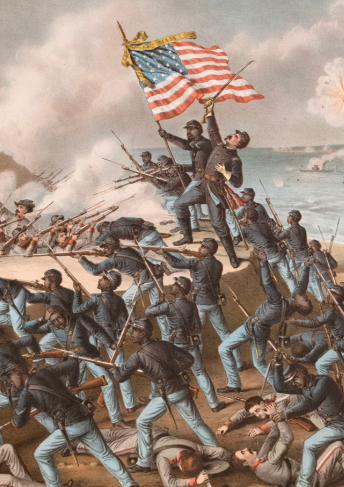An Account of the Trial of Thomas Cooper, of Northumberland; on a charge of libel against the President of the United States.
Philadelphia: John Bioren, 1800.
Price: $3,000.00
About the item
First edition. 64pp. 8vo. Modern blue morocco backed cloth. Title and preliminary leaves foxed. Exlibrary, with inked and blindstamps on title and first text leaf (NY Bar Association). ESTC W10129; Evans 37249; Sabin 16608. Forrest K. Lehman, "'Seditious Libel' on Trial, Political Dissent on the Record" in The Pennsylvania Magazine of History and Biography, Vol. CXXXII, No. 2 (April 2008), pp.118-19.
Item #346776
The present work concerns the trial and subsequent imprisonment of Thomas Cooper, an Englishman by birth who loved in Northumberland, Pennsylvania and worked as a lawyer and newspaper editor, for violating the Alien and Sedition Act. In 1799, he had requested John Adams to appoint him an agent for settling the claims of citizens and subjects of this country and Great Britain. On Adams’s refusal, Cooper printed a defamatory broadside (known in but a single extant copy at the American Antiquarian Society, titled Mr. Cooper's Address to the Reader's of the Sunbury and Northumberland Gazette) with derogatory remarks for which he was tried for violating the Sedition of Act of 1798 by criticizing the government of the United States.
From jail in Philadelphia, he had published this annotated account of his trial in an effort to imbue his persecution with political significance, stating in the preface: "The Citizens of this Country may learn some useful lessons from this trial; and principally, that if they mean to consult their own peace and quiet, they will hold their tongues, and restrain their pens, on the subject of politics: at least during the continuance of the Sedition Law; a Law, which I do not think 'the powers that be,' will incline to abolish."
"The Acount is fascinating not only because it exposed the manner in which a Federalist judiciary enforced the sedition laws against its Republican opponents, but also because it revealed Thomas Cooper's willingness to exploit his own arrest for political gain. In all likelihood, Cooper published the annotated account of his trial not to salvage his own reputation, but rather to imbue his persecution with political significance ... Cooper skillfully framed the upcoming election as a referendum on the Sedition Act and on American citizens' right to engage in political debate rather than as a contest between two political parties and their ideologies" (Lehman).




